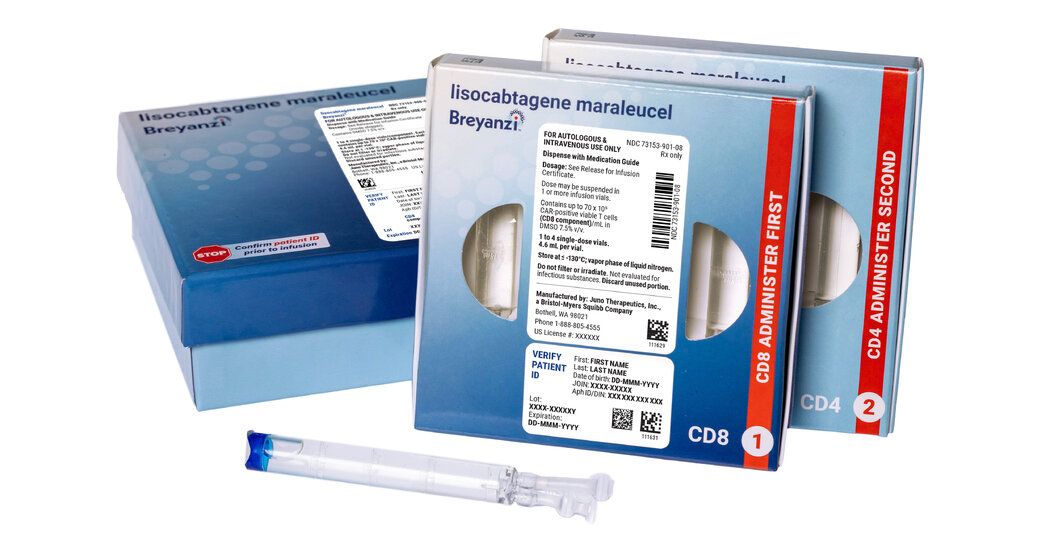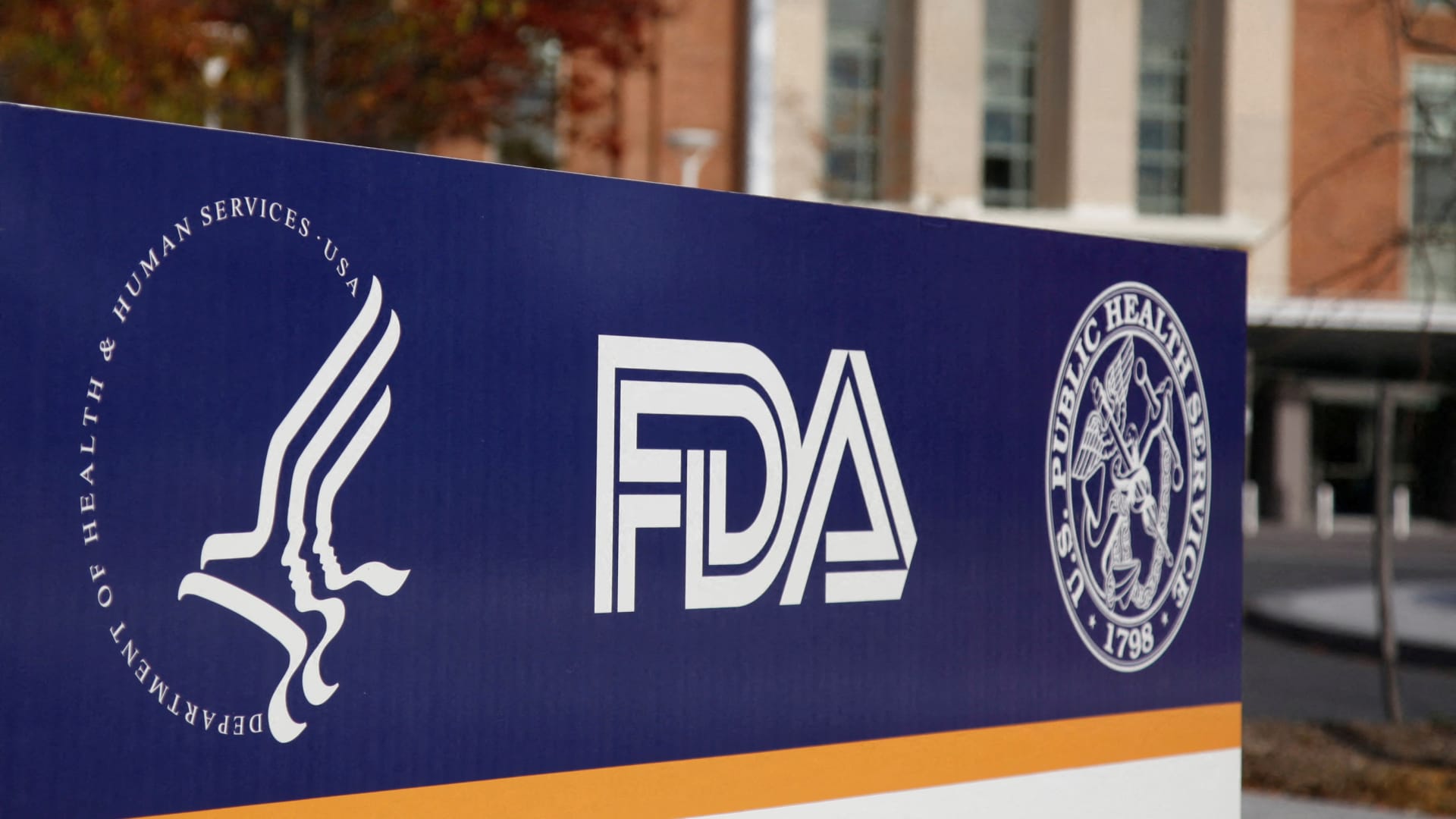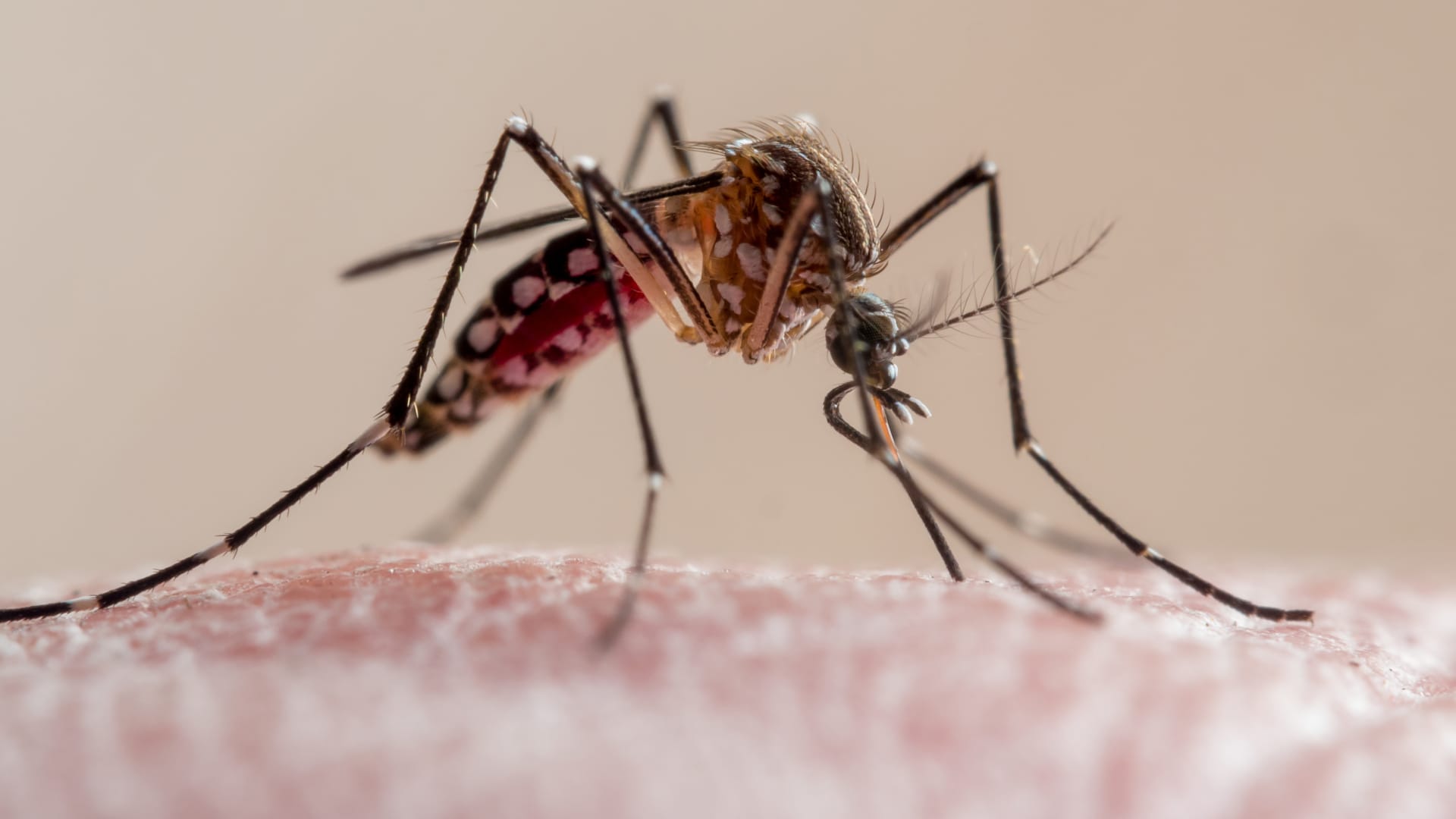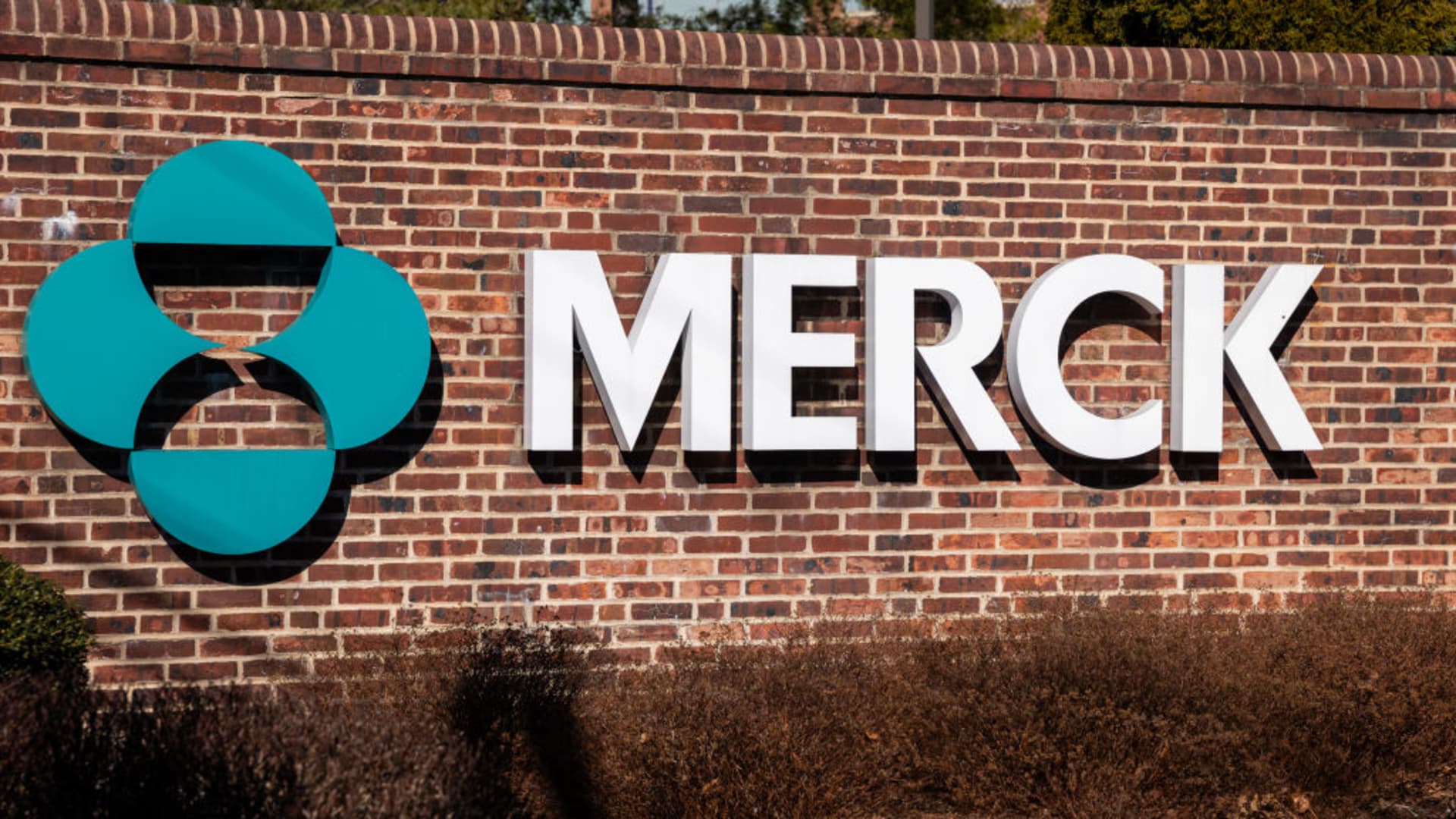The Food and Drug Administration requires companies that make specialized cancer therapies known as CAR-T to add a boxed warning that the treatments themselves can cause cancer.
The agency noted that the benefits still outweigh the risks of the therapy, which involves removing one type of white blood cells (T cells) and then genetically modifying them to create proteins called chimeric antigen receptors (CAR). Infused back into the patient's blood, the engineered cells allow T cells to attach to and destroy cancer cells.
But the therapies, which primarily treat blood cancers including multiple myeloma, had already carried a warning about dangerous immune responses and neurological risks. And the new warning follows reports of about 20 cases of secondary cancers that federal health officials and others suspect were caused by CAR-T treatments, although more research may be needed to establish a definitive link. The therapy is estimated to have been used by between 25,000 and 30,000 patients since it was first approved by the FDA in 2017.
Cancer patients receiving CAR-T treatments tend to have few options and are unlikely to change course even with the new warning, said Dr. John DiPersio, an oncologist at Washington University in St. Louis.
“The risk of not doing this therapy for most patients who receive it is rapid progression of their disease or certain death,” he said.
The FDA raised concerns about adverse effects of the treatments late last year.
In letters dated Jan. 19, the agency outlined warnings that were required to come with some of the companies making CAR-T therapies, which had also been ordered to monitor patients for secondary cancers and report any cases to the FDA. . Secondary cancers can lead to hospitalizations. or death, the agency noted, requiring drug companies to provide warnings on drug labels that secondary cancers “may occur as early as weeks after infusion, and may include fatal outcomes.”
The FDA sent letters to these companies: Bristol-Myers Squibb, maker of Abecma; Juno Therapeutics, a Bristol-Myers Squibb company, maker of Breyanzi; Johnson & Johnson's Janssen Biotech, maker of Carvykti; Novartis, from Kymriah; and Kite Pharma, from Yescarta.
Given the dire prognoses for patients considering CAR-T therapies, Dr. DiPersio said, the new warning amounted to “much ado about nothing.” He said he hoped the news would not slow down future investments or studies of treatments for other serious medical conditions. Some drug makers are studying the use of CAR-T therapy to treat lupus, an autoimmune disease.
“We cannot create an environment so frightening that companies and researchers avoid this approach because they consider it too dangerous, because it is not,” he said.
Financial analysts also predicted few consequences, Brian Abrahams, an analyst at RBC Capital Markets, said in an email.
“It's still a very rare side effect,” he said. “These are sick patients receiving these therapies, and most CAR-T treatments have shown very clear benefits, including prolonged survival, so we would not expect these label changes to materially reduce use of the agents.”











